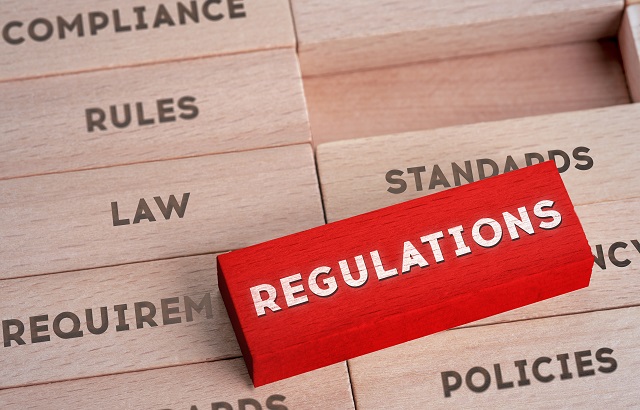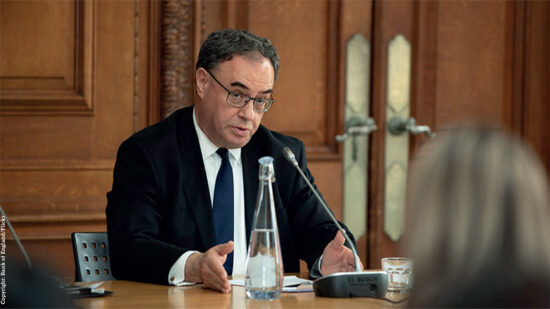It’s been over three years since unexplained wealth orders (UWOs), also known as ‘McMafia orders’ as they are often sensationally referred following the TV series, came in with a huge amount of press attention, writes Andrew Fremlin-Key, associate in the media and reputation team at Withers.
While the interest in McMafia has certainly died down, the same cannot be said of UWOs.
Over the past few months, press intrigue has ramped up with calls to serve President Trump with an UWO in relation to certain properties in Scotland and also alleged allies of Vladimir Putin who are said to own property in London.
In a world of uncertainty, one thing is clear – UWOs are not going away any time soon.
Who can be targeted by a UWO?
There are broadly speaking four requirements which an enforcement authority, which includes the National Crime Agency (NCA) and HM Revenue & Customs (HMRC), must meet in order to obtain an UWO:
- There must be reasonable cause to believe that the individual holds the property in question;
- That individual’s interest in the property is more than £50,000;
- There must be reasonable grounds to suspect that the known sources of income of the individual is insufficient to pay for the property; and
- The individual is either a non-EEA politically exposed person (PEP) or there are reasonable grounds for suspecting the individual is involved in serious crime (or connected to such a person).
If granted, those subject to the UWOs must explain how the relevant property was obtained and demonstrate what income was used to finance the property. If they fail to comply with a UWO there is a presumption that the property was obtained through unlawful conduct and it then becomes recoverable in civil proceedings.
Anyone who provides a false or misleading response to a UWO commits a criminal offence with a maximum of two years in prison. These are serious, and some might say draconian, consequences arising from a civil investigatory tool, hence advisers’ understandable interest in this area.
2020 – the year that was…
Hajiyeva was the first UWO case initiated by the NCA and very much viewed as the guinea pig for future cases.
Hajiyeva was originally served with UWOS in 2018 and having progressed through the court of appeal in December 2020, the supreme court refused permission to appeal. This means that if she is unable to explain her interest in the properties in question, the NCA will be able to bring civil recovery proceedings for those assets. Watch this space.
A key takeaway is that the court of appeal has stated that the definition of what constitutes a PEP should be construed broadly. Essentially anyone carrying out ‘prominent public functions’ in a non-EEA state could fall within the legislation.
2020 was also the year of the first serious setback for the NCA in relation to UWOs. NCA v Baker concerned three UWOs over London properties held by offshore entities worth some £80m ($110.8m, €92.1m).
Baker effectively acted as the trustee of the settlements holding the properties. The NCA’s key allegation was that the properties had been acquired with proceeds of criminal activity by Rakhat Aliyev, a deceased Kazak ex-politician, and then laundered by his family.
Baker challenged the orders with the support of Aliyev’s former wife, Dariga Nazarbayeva, and their son, Nurali Aliyev, providing evidence to show that the properties in question had been acquired after the divorce of Aliyev and Nazarbayeva.
As a result, the NCA’s argument that they had assisted Aliyev in hiding his assets didn’t really work in practice. The judge said that the NCA’s underlying assumptions were ‘unreliable’ and their reasoning was ‘artificial and flawed’.
Is that the death of the McMafia order?
In short, no. The NCA recovered nearly £10m worth of assets in October 2020 that had been the subject of a UWO obtained back in 2019. The individual was a UK businessman called Mansoor Hussain who the NCA alleged had links to serious organised crime.
Hussain represented himself and submitted a 76-page witness statement together with 127 volumes of evidence.
According to the NCA, the evidence provided strengthened their case against him which is a word of warning to anyone subject to a UWO.
What steps should your clients consider now?
Your clients should be looking at undertaking an information audit as best practice, regardless of whether there is an imminent risk of a UWO. The object of such an exercise is to establish if the available information is reliable, up-to-date, and accurate, as false claims or inconsistencies may trigger an investigation.
Given the potential importance of PEP status, it is worth seeing what information third party due diligence companies hold in relation to your clients, there are ways of obtaining this information under the GDPR. We have seen many cases where clients have incorrectly been classified as PEPs.
What media articles are available which refer to your client? Google can be your friend here.
Obviously, your legal options will depend on what is said in the publication but consider whether there are grounds for removal or amendment on the basis of defamation or inaccuracy pursuant to the GDPR.
The general point is that this is as good a time as any to review complicated tax or trust structures and ensure that everything is properly documented and accounted for.
And if the worst happens and you are served with an UWO? Don’t try and deal with it without support as the consequences are severe.
While there have only been a few cases to date, if it is your client that is served with a UWO, it is likely to dominate your workload for the foreseeable, so it is worth getting your ducks in a row now.
This article was written for International Adviser by Andrew Fremlin-Key, associate in the media and reputation team at Withers.








